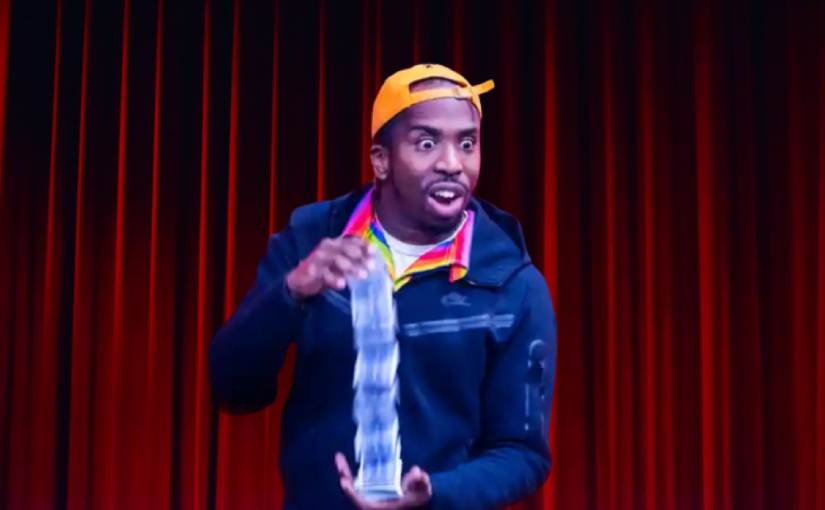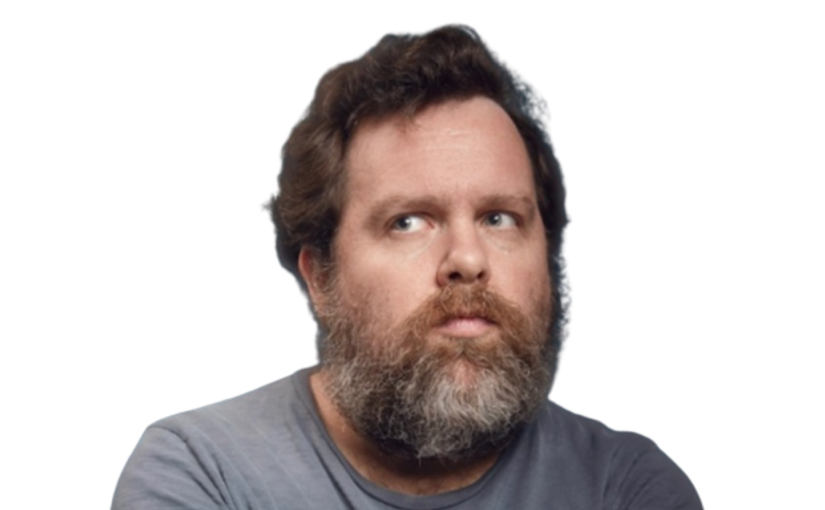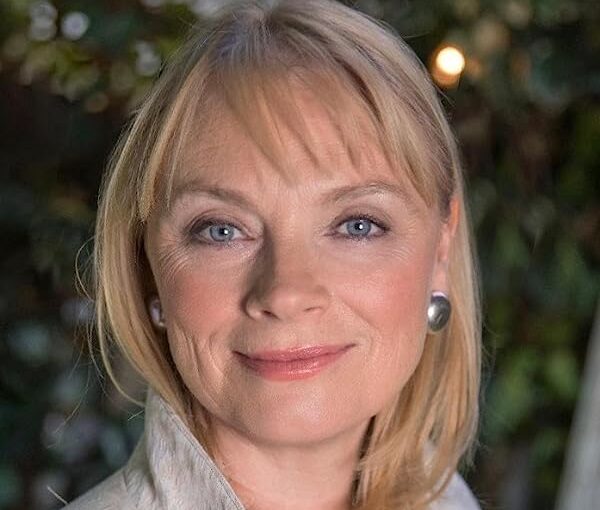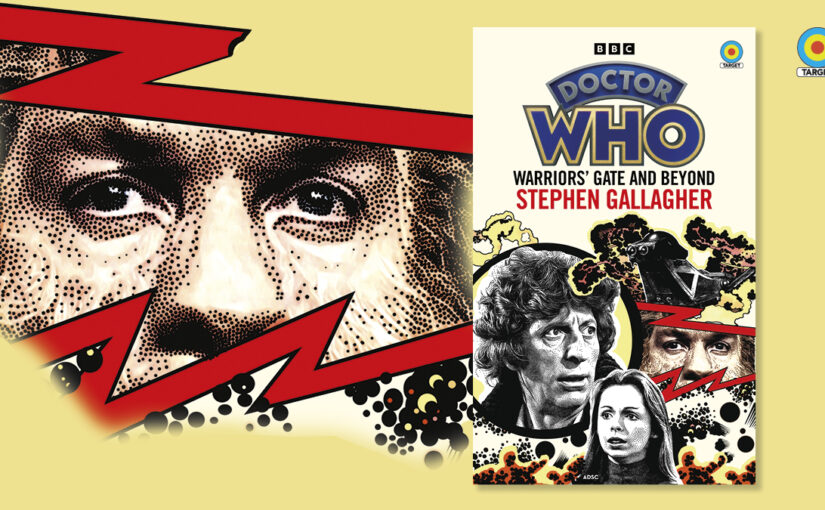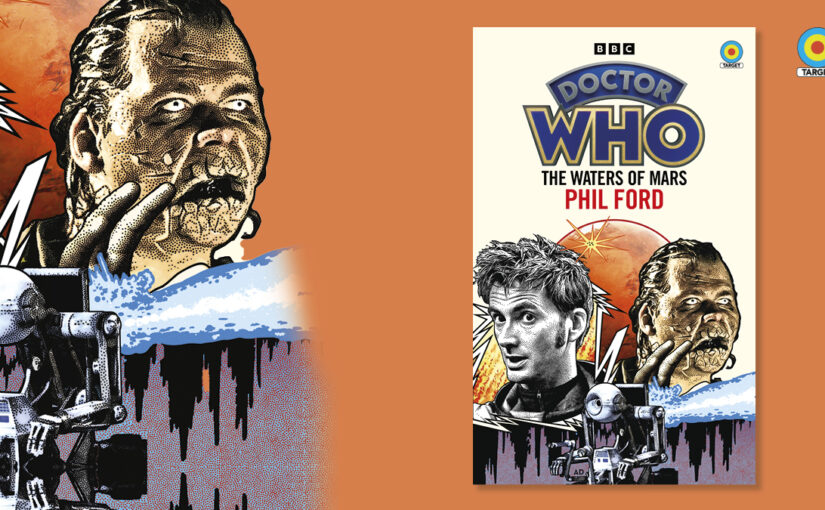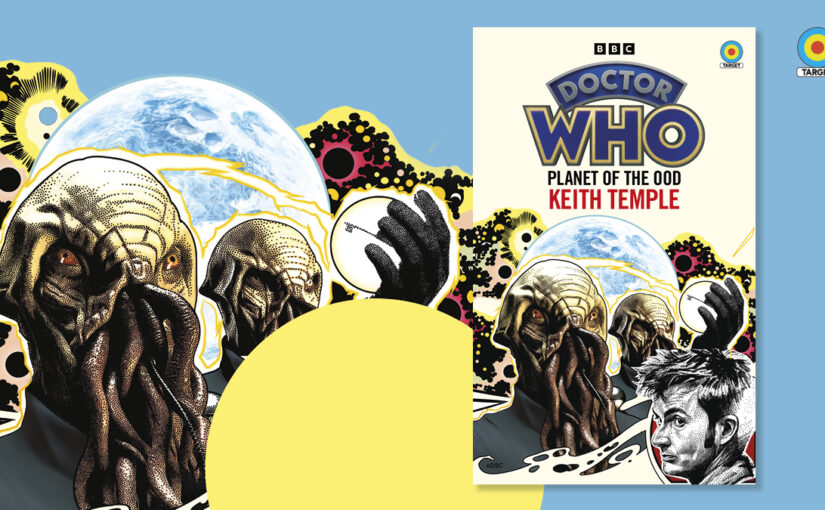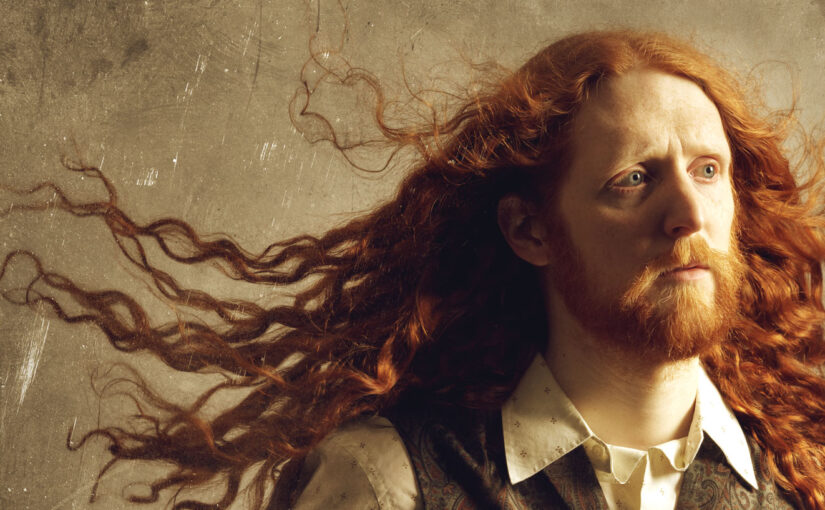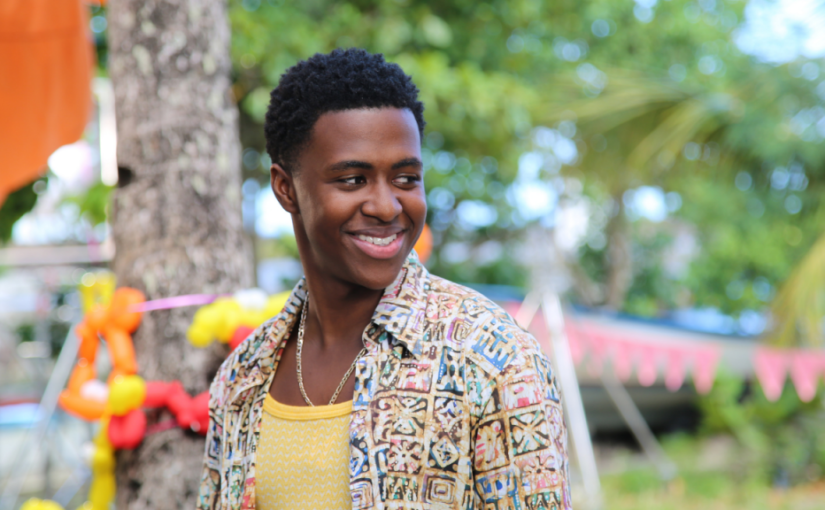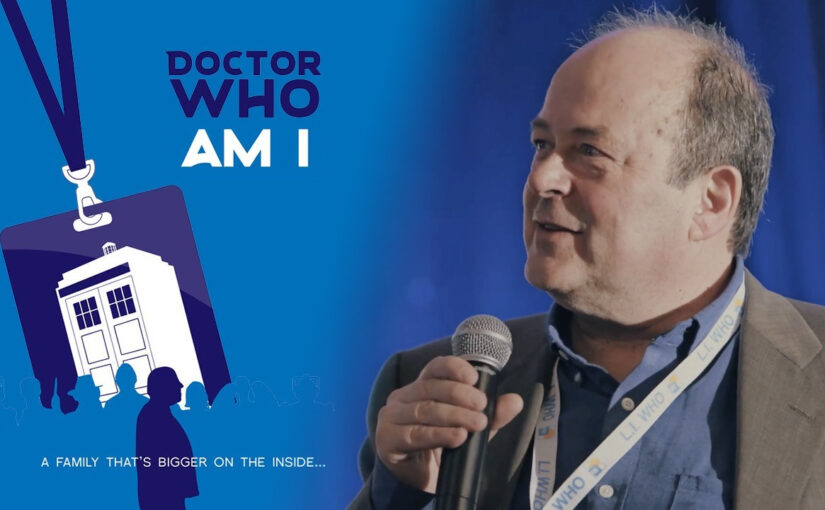Martyn sits down with British comedian, Lucy Porter to discuss her TV viewing habits. Her husband’s role in Thor 2 and details about her new tour.
If podcasts aren’t your thing, there’s a transcribed version down below. The transcription was auto-generated.
Wake-up call launches 13th of January. For more details visit Lucy’s website.
Martyn: It’s recording. I figured it out. That’s the thing about being middle-aged now, is I don’t get any of this tech.
Lucy: No. Well. I’ve had to learn really quickly. Because our podcast, you know, we have guests on. My nightmare is I’ll lose the recording. We did one with Martin Sheen. Which was our biggest guest ever! I was hosting the meeting and at the end of it, I was pretty sure that I’d lost the whole thing. I was trying not to, you know, when you’re trying not to show panic? I was saying to the producer, I was like, if I’ve clicked on this, Amanda? But it was fine. The idea of having to call him up and say “Can we do it all again? I pressed the wrong button”. Would’ve been awful.
Martyn: Did I see you all from Croydon?
Lucy: I am, you?
Martyn: I’m from Mitcham, but I was born in Croydon.
Lucy: Yay. But you’re much younger than me, so we probably won’t have anyone in common will we?
Martyn: I’m about five years younger than you. So, maybe.
Lucy: So, the Blue Orchid would still have been there?
Martyn: I was going there when I was 16. Yeah. The blue school kid, as they called it. That’s a local reference for nobody else.
Lucy: I love it. I could talk about Croydon all day. I feel really bad though, that I don’t live there anymore. You know, I feel I’ve betrayed my parents, my roots, and all my friends that still live there are like “when are you coming back?”. Maybe one day.
Martyn: Yeah. I’ve not been there for ages. I live in Epson now.
Lucy: Oh, nice! Well. I’m coming to the playhouse.
Martyn: Excellent, I’ll come and see you. So you’re here to talk about your new standup show, that launches next week, wake-up call. What can you tell our audience about it?
Lucy: Well, given that this is a sort of pop culture podcast. I suppose it is a very middle-aged show. So it’s for people who loved Red Dwarf the first time around.
Martyn: Brilliant, brilliant.
Lucy: That’s the sort of demographic I’m looking for. I was saying the other day that the test of whether it’s a show for you is. Are you wearing an item of clothing you bought in a garden centre? Is the only reason you stay up at night, now if you’ve got a bladder infection? Would you rather watch the repair shop than go clubbing? That’s the vibe of it.
Martyn: It’s great being middle-aged now because nobody really expects anything from me. Nobody expects me to show up to anything.
Lucy: Yes. Oh, God. And if you cancel plans. People are so delighted. It’s that lovely thing of going, listen, I’m sorry, I can’t make that thing we said we’d do. And everybody’s like, “Yay! We stay in and watch TV”.
Martyn: The relief when that text comes around and says ‘I can’t make it’.
Lucy: Yeah and. It’s always great when you’re not the one who’s broken the arrangement, then you can act wounded
Martyn: Oh no.
Lucy: Oh, I was really looking forward to the thing, I didn’t even want to do in the first place. But yeah, I mostly stay in and watch films with my kids and that is bliss.
Martyn: What have you been watching?
Lucy: We constantly watch the Marvel films on a loop basically. We sort of watched them all and then we watched them again. The first time we did it, which was kind of lockdown really, we did release orders, and then we’ve gone back and done them chronologically. Now we are just sort of picking and mixing. I will only really do Guardians of the Galaxy repeatedly. My poor husband will sit through anything. He was in a Marvel movie. The street cred that my kids have.
Martyn: Excellent. Which one?
Lucy: Oh, the worst one. Thor 2.
Martyn: Oh no!
Lucy: But yeah, he plays a policeman that gets thrown across a car park by Natalie Portman.
Martyn: Oh, excellent. Good day at work.
Lucy: Yeah.
Martyn: I’ll look out for him. How do you write a stand-up show? I get how somebody would write a book, but what’s the process for writing stand-up?
Lucy: I mean, it’s very much, the lazy person’s way to write anything. Because you just do a little bit every now and then. And because stand-up constantly evolves. Kind of just snippets and overhead bits of conversation. I have a million notes on my phone. I’ll share some highlights. I’ll have a look. But I will write down something, that then makes no sense to me. Voyage supplies? No. No idea what that is. Lasagne-moussaka. That was because I had written a joke that involved the word lasagna and I wanted to remind myself to change it. Because moussaka is a funnier dish than lasagna. Cat bin lady. I did mention her. So yeah, I basically have loads of notes, loads of different stuff going on. I was recently diagnosed with ADHD, which I was very reluctant to do. I thought, ‘well, you know, I’m 49. Who cares whether you know what’s wrong with me or whatever.’ But it was the best thing that I’ve ever done. The psychiatrist who diagnosed me just basically explained my whole life to me and explained to me why I’m a stand-up comedian. He was like “Yeah. Your brain cannot function in a linear way and it has to go off on tangents. Your executive function is impaired”. So, you know. Things like losing your keys. Being a nightmare with being late and stuff. He’s like “basically it’s not your fault”. I wept with gratitude cuz I was so delighted to finally be absolved from thinking I’m a crap human being.
Martyn: I’ll bet
Lucy: It turns out, I’m just different and special and that’s great. Loads of comedians over lockdown, given the time for introspection, got diagnosed with ADHD or diagnosed themselves. Angela Barns and Shappi Khorsandi have been really good to talk to you. Because you sort of think, ‘Yeah. There’s a reason that we all do this job.’ It’s because we all have high self-confidence, but low self-esteem and no capacity to really concentrate for long periods of time. So, stand-up is just absolutely ideal ‘cause I can like write five minutes and then I get the instant endorphin hit of going out that night. I basically write by kind of just having an idea, then a bit later. I have another one and then I string them all together and make an hour of stuff to take to Edinburgh. Then I split it up and add some bits and make two 40-minute halves to take on tour.
Martyn: It’s interesting you say about getting diagnosed with ADHD because we recently found out my son has autism. When I was reading the list of traits, I was like. Oh, that actually sounds like me. Maybe I should get tested.
Lucy: Exactly. Well, this is the thing. It didn’t exist, like when I was a kid. Obviously, it didn’t exist, as a diagnosis. And then so many people I know. This is what happens. Your kid gets diagnosed with something and you go ‘oh, okay. Yeah, that explains a lot about my life.’ I was kind of quite sceptical about whether it’s useful to have a label and, you know, are we just kind of pathologising normal human behaviour or whatever. But, actually, I think it is just useful to know yourself. It’s just self-awareness really, isn’t it? Thank goodness to our children for getting us to know ourselves.
Martyn: How did you get into comedy?
Lucy: Loved comedy from being a kid. My mum and dad really liked Dave Allen and Billy Connolly and stuff. So that was the sort of formative influence. I was into sort of Indie music and comedy in my youth. The Balham Banana was my club of choice. I went to see Julian Clary when he used to do the Joan Collins fan club and Jo Brand, Mark Thomas, Mark Steele and Jeremy Hardy. So, I just developed this passion for comedy. Then I went to Manchester University and there was a little comedy scene growing there, with people like Caroline Aherne, Steve Coogan and John Thompson. And then I was lucky enough to go and work for Caroline Aherne on the Mrs Merton Show as a guest booker. Which was a phenomenal job to have. She was so lovely and encouraged me to follow my dream of writing comedy. And through that I thought, well, I’ll give, stand-up a go. Even though I wasn’t a natural performer and I’d never done drama or anything like that, I’d always written. I did a little gig at Alexander’s Jazz Bar in Chester. This night was run by the comedy police. These guys dressed up as policemen, and it was like a gong show. You tried to get to five minutes, but if the audience didn’t like it. They’d go ‘woo-woo-woo’ and you’d be truncheoned off the stage by these two policemen.
Luckily it went quite well. And so I just, I kind of fell into it really. But largely it was because I couldn’t hold down a proper job. I was trying to work in TV production and it was a complete disaster because I was always late and really disorganised. Then I tempt for a bit. Luckily, I found comedy and comedy found me.
Martyn: How do you handle heckling?
Lucy: I don’t get heckled anymore. I mean, in the early days, because there were sort of relatively few women doing stand-up. You would get the occasional. “Get your tits out!” or you know “make me a sandwich”. Which was always delightful. But these days, I don’t get heckled at all. Obviously, my audience being my age, they do occasionally have to get up to go to the loo. Or they make a noise when they stand up and sit down, but there’s not really any heckling. It’s all very good nature and polite. I think people don’t heckle so much anyway now. There’s a bit more awareness, that you are the one who’s likely to look like a dickhead rather than the comedian.
Martyn: Yeah, sure. How do you practice material? Do you like a work in progress?
Lucy: I do sort of previews leading up to Edinburgh. Where you sort of let people know, that it might not be very good. But generally what I try and do is just slip in bits of material to the show and see if they work or not. The lovely thing about stand-up is it’s so fluid that you can, you can have an idea and try it out that night, and then if it works, it works. And if it doesn’t, it’s gone. It’s not like doing TV or radio or Indeed podcasts. Where you have the luxury of editing. Or have to think about what works with what. You just give it a go. Then you edit as you and it’s not a pain in the ass, like editing podcasts and other things.
Martyn: Obviously you host a podcast about quizzes.
Lucy: Yeah, with Jenny Ryan.
Martyn: So, you’re a big fan of quizzes. Is there any old-school quiz show, that you would like to revive?
Lucy: Well, I mean. They did bullseye. I think for all of us, it was the definitive quiz growing up.
Martyn: Yeah.
Lucy: And anyone my age Bullseye. There’s just something about it. The combination of Jim Bowen and the contestants and the prizes. It was all of its time and lovely. Then, of course, darts. Who doesn’t love darts? So that to me is the perfect game show. But, I do think Going for Gold is again, something that we all absolutely loved. It was such a great concept, and I think a Pan-European quiz show is what we need to heal the Brexit wound.
Martyn: Yeah. Absolutely.
Lucy: And Henry Kelly, we interviewed Henry Kelly for the podcast and he’s still sharp as a tack and brilliant. So he could come back and do it again.
Martyn: Do people pitch ideas to you for your stand-up?
Lucy: Yes. Or the thing that you get is people saying. “Oh God, you’re gonna use this in one of your routines”. When they’ve just told you the dullest anecdote that you can ever possibly imagine hearing. Very little that is pitched to me makes it in, I have to say. Without being rude to anyone, that’s ever suggested something. But the thing about stand-up is, it has to be so personal, I think, to work. If it’s inauthentic, I think an audience can really sniff that out. I mean, I do occasionally work with writers. I think that comedy writers are brilliant and I have written stuff for other people and worked with other people. There’s a woman called Gabby Hutchinson Crouch, who is amazing and a man called Mike Shepherd. They will help me out and be sounding boards and write stuff based on what I’ve said. That’s just a joy and a delight to work with other people. Because it’s a bit lonely being a stand-up. That’s the only thing I would say to any aspiring stand-ups out there, is the creative process can be quite painful if you really are not having ideas and you’ve got a show to do and it’s just you on your own in a room. That can drive you slightly mad as with all writing, but you know, particularly with standup, when you know you’ve gotta go out and do it in two hours.
Martyn: What were the panel shows like to do? Obviously mock the week is no longer with us, sadly. What was that like?
Lucy: Yeah. Well, I only did that one a couple of times. It was quite Gladiatorial in the early days when I did it. So I can’t say that was a particularly relaxing time. I think I’m much better at them, as I’ve got older because I’m a bit less try hard or whatever. I like ones where you don’t really do much prep. Just a Minute and stuff are really fun to do. And I love doing The News Quiz on Radio Four.
I’m a bit more comfortable on the radio these days, to be honest. Because I think you can be a bit more discursive and it’s less sort of gag, gag, gag. And it’s a bit more sort of flights of fancy and whimsy, which is kind of what I enjoy.
Martyn: The old thing is radio still grasps people’s attention, even though people are doing other stuff as they listen. There’s something about the play of the mind. I feel that audiences maybe concentrate more on radio than they do on TV these days.
Lucy: Yeah, I mean, I love podcasts as well. I do feel like I am the luckiest person, to have been born in this era where audio entertainment is so freely available. You can switch from a sort of gritty true crime thing to two people talking about some, you know, obscure sitcom. In fact, Jenny Ryan, who I do the quizzing podcast, Fingers on Buzzers with. Really want to do a podcast about the Croft and Perry Universe. So working out where the characters in Hi-de-Hi! fit in with the characters from You Rang, M’Lord? Oh, Doctor Beeching! We keep saying we’re gonna do this cuz we’re obsessed with Su Pollard as much as anything else. But I love the fact that you can delve into any aspect of pop culture. I feel very fondly towards my favourite podcast hosts like Phoebe from criminal. I’ve never met her, but I just know that we’d get on.
Martyn: It is like you’re just hanging around with mates when you listen to a podcast.
Lucy: Yeah. It is like a lovely night at the pub sometimes. Which is obviously something that is now less available to me in real life. So yeah, I think that’s why I enjoy it so much.
Martyn: What’s the stand-up circuit been like Post covid?
Lucy: Well, I dunno really. Because the stand-up circuit is, you know, the clubs and pubs and I have been mostly just doing my own little gigs in art centres and theatres and stuff. But, I think it’s sort of back, but the Edinburgh Festival last year was kind of weird because we were all so excited. About the proper festival is back on and then nobody turned up for about the first two weeks and we were like, we’ve all made a terrible mistake. But then it sort of picked up towards the end. But I think people are just. I don’t think it’s even just my age. I think that people are a little bit more tentative about going out and making plans now. There’s definitely a lot more wiggle room for cancellation and you know, people don’t buy tickets. Oh, well, I know I don’t buy tickets to stuff until the last possible minute because I’m always thinking, well, maybe we’ll get ill, or the world will end or there’ll be a train strike. The whole entertainment and hospitality industry is really suffering at the minute and, you know. I one-hundred per cent support the strikes. The country is in an absolute state, isn’t it?
Martyn: Yeah.
Lucy: I think comedy is suffering in the same way that everything else is. But has never been more needed. Of course. I was doing a gig with someone last night and I was saying. “oh, you know it’s pathetic what we do, isn’t it?” And he was like. “No, no. The world’s so awful that comedians are basically key workers now”.
Martyn: Oh, absolutely. Yeah. We need levity.
Lucy: I was like “I don’t think we can say that”. But it is nice to get out.
Martyn: Yeah. Well, it’s weird for me watching the railway strikes. Because I worked on the railway for 11 years.
Lucy: Oh, did you?
Martyn: Yeah. Never had a strike in that in that entire time. But yeah, it’s weird watching. I see former colleagues on the news being interviewed. It’s strange.
Lucy: Well, you left and it went downhill.
Martyn: Exactly. I was doing the job of four people. So what’s Edinburgh like to do normally, because it sounds like an anxiety nightmare to me.
Lucy: Well. It is, but it’s also the most fun you’ll ever have. So it’s high-risk, high reward. For those who have never been, it’s a month of, you know, theatre, comedy, dance, magic and everything being on in every tiny unsuitable room in the city, that they can find. The first year I went up to the festival, I was doing a show with other comedians and we were in the Sea Scouts meeting hall, which was cold and drafty. And every now and then during the show, some Sea Scouts would just wander in and be slightly confused about what we were doing there. But for comedians, it’s like a holiday camp really, cuz you go up to the most beautiful city in the world for a month and you get to sort of swan around looking at pictures of your own face on posters and going out, drinking with your mates until the wee small hours of the morning. And then coincidentally doing a show. It brings out the best in everybody’s creativity because you go and watch other things. I will go and watch more theatre and dance. Things I would never dream of going to see in normal times, really. And I’ll see all this stuff in Edinburgh. It all feeds into your sort of creative process, you end up going. ‘Oh, maybe I could stage my show like that dance piece’. Or that theatre show has made me think about an aspect of my life that I’d never thought about before. It’s absolutely brilliant. And it is also just a really good kind of solid drinking session for a month.
Martyn: Well, what more could you want?
Lucy: Exactly. It’s a perfect time.
Martyn: Alright, Lucy, I know you’re very busy, so I’m gonna wrap it up now. Thank you so much for joining me for this.
Lucy: No, thank you. Really appreciate it.
Martyn: Cheers. Bye.
Lucy: Bye.
Socials:
Twitter: Martyn, Lucy.
Instagram: Martyn, Lucy.
Wake-Up Call launches 13th of January.
